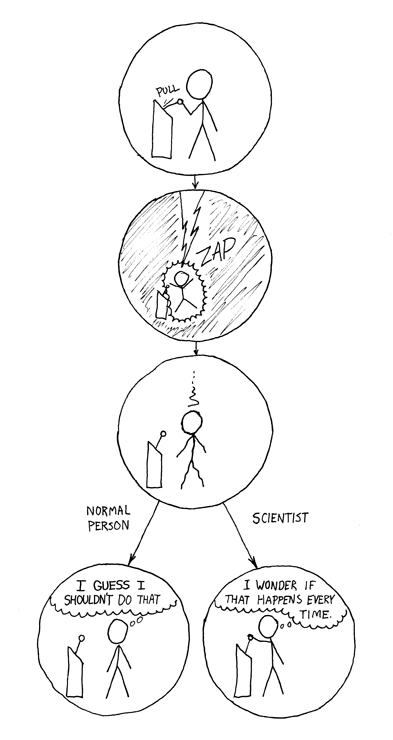 It's the end of our tournament and time to name the Coolest Scientist Ever. It is the last word that really defines the winner. Ever. Scientific progress has been driven by the gift of genius and the people who possess it. All of the scientists who we discussed have made an impact on the world. Their discoveries have opened new fields of study and broadened our understanding of the universe and our place in it. All of them are important names in history, but one person has moved past all of the others to occupy a place in the cultural lexicon that very few people ever achieve in any field.
It's the end of our tournament and time to name the Coolest Scientist Ever. It is the last word that really defines the winner. Ever. Scientific progress has been driven by the gift of genius and the people who possess it. All of the scientists who we discussed have made an impact on the world. Their discoveries have opened new fields of study and broadened our understanding of the universe and our place in it. All of them are important names in history, but one person has moved past all of the others to occupy a place in the cultural lexicon that very few people ever achieve in any field.When you think of musical greatness you think of Beethoven (or Lennon and McCartney or Madonna depending on your tastes). When you think of histories great leaders you think of Washington or Ghandi or Mandela. When you think of art you think of Van Gogh or Rembrandt. These are the people that have achieved transcendent greatness in their field, their accomplishments so vast that they’ve been reduced to a single name that evokes the depth and breadth of their accomplishments.
 When you think of scientific greatness, you think of Einstein.
When you think of scientific greatness, you think of Einstein.Stephen Hawking is still the Coolest Living Scientist, which, if you think about, is really very cool. Stephen Hawking is an accomplished scientist who has done so much work to popularize science. But, he's no Einstein.
Einstein's work in the field of physics made him a titan. His theories form the foundation of modern physics. That makes him cool. He was politically active and spent the 30's railing against the dangers of Nazism. That makes him very cool. His eccentricities and his wit made him a popular figure in his day, and he continues to be the basis for films and books. Every mad scientist in pop culture now has a touch of Einstein. For goodness sake, part of Yoda was modeled after Einstein (seriously) and how cool is that?
 All of the scientists in this tournament were incredible thinkers and activists. All of them were and are brilliant, but only one of them is an actual synonym for genius.
All of the scientists in this tournament were incredible thinkers and activists. All of them were and are brilliant, but only one of them is an actual synonym for genius.The Coolest Scientist Ever. Albert Einstein.
For more about the competition and results from earlier rounds, check out the Sweet 16, Elite 8, and Final 4.
















